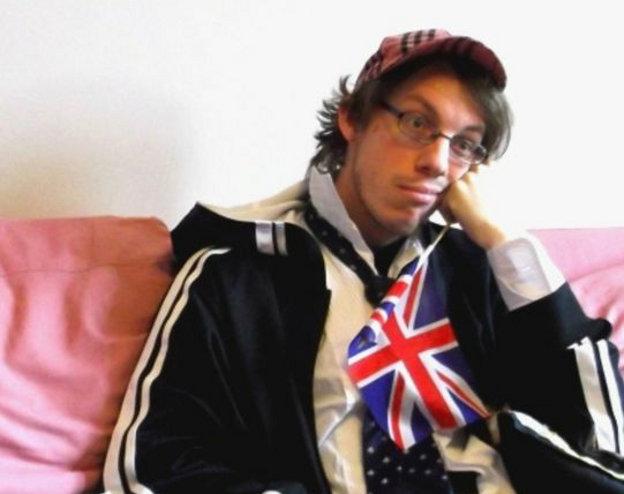Harry Giles is an emerging performance artist whose work covers poetry, live art and performance, and whose pieces often make direct and specific social comment and analysis.
Describing himself on his website as a performance maker whose work falls somewhere under the ever expanding umbrella of live art, Giles states that he ‘takes a subject he is angry or confused about and makes a performance to understand it better’. It is perhaps here that I sometimes run into conflict with some of the work encountered in the live art world: the personal is made public, and with an artist’s opinion at the centre of a work, and the artist themselves present, it can sometimes be hard for the public to find a space in which to place their own thoughts and feelings. Giles attempts to combat this with interactive games and activities that all revolve around a physicalisation of sociological research, from paying our rent with sweets to dressing Harry up as a member of a specific social group. The direct transposition of good work equalling monetary value is given with the reward of sweets for every game won or act carried out correctly. Whilst I am made to feel very ‘active’ as an audience member, I am also made to consider the difference between action and interaction.
There is an obvious and huge amount of research in this work, which is interesting and educational, yet I find myself questioning the definition of this piece. A teacher once told me that art is the friction between form and feeling. Whilst art is often informed by very technical and in-depth research, it is when a small leap is made into abstraction that it tends to create the biggest impact. Harry uses a powerpoint presentation to guide us through his musings and games, encouraging us to fully understand his findings, and taking Class Act as an educational piece, I was fully engaged. I enjoyed myself and was interested in the subject, but there is something about being spoon-fed information and facts rather than being presented with a space in which I might develop my own thoughts on a subject that seems more informative than artistic. I am not questioning Harry’s intentions; he is endearing and obviously passionate about his subject. However, his methods to evoke interest could perhaps be further developed. To elevate thinking, as Harry hopes, we surely need a larger amount of self-governance and self-realisation, rather than being told what is good and what is bad, yet Harry seems to spell this out. The finale sees us being handed a card that gives us only three options for what we will do after seeing this piece; to organise a meeting to discuss class issues, to attend the next protest / march on workers issues, or to join the Worker’s Union – not a very self-directed outcome.
I must say, though, that I think this piece would work immensely well as a ‘performance lecture’, either in schools or universities. To push education in a more provocative and artistic direction is definitely interesting, yet to push art in a more informative and educational one is, perhaps, less so.

